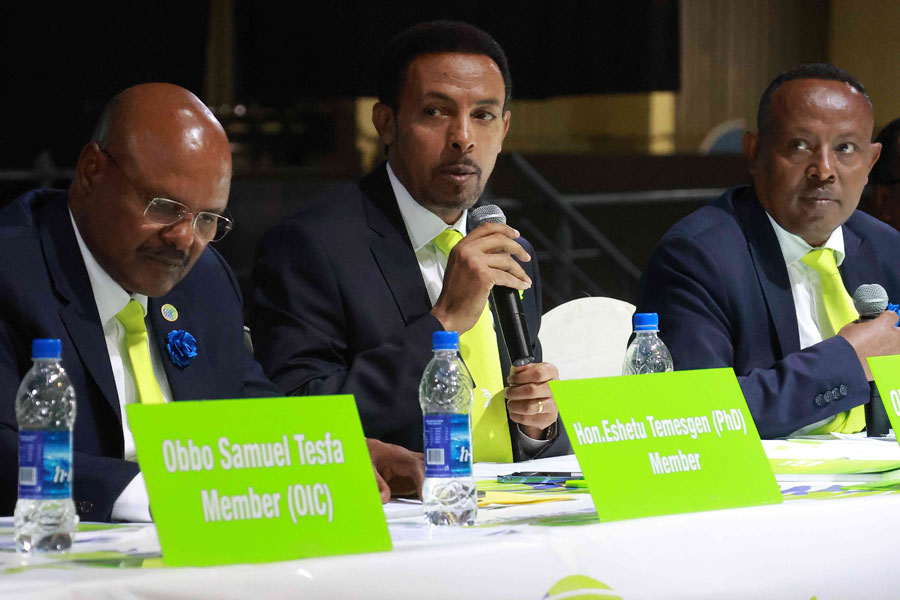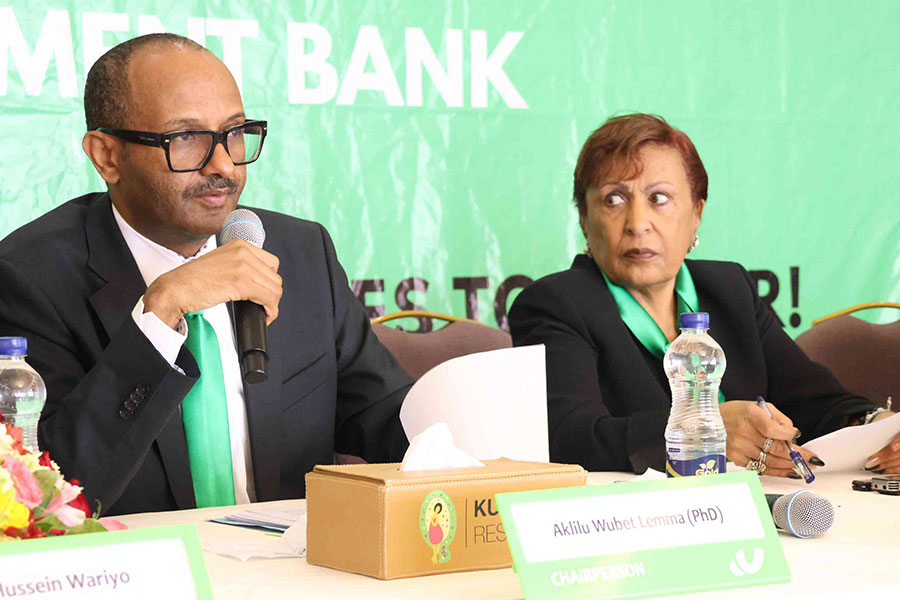
Nov 11 , 2023
By Hintsa Andebrhan
Ethiopia’s abstention in a United Nations (UN) vote on a ceasefire for humanitarian aid in Gaza has sparked surprise and drew attention, as it appears at odds with the expectations of a country led by a Nobel Peace laureate, Prime Minister Abiy Ahmed (PhD).
The abstention raises questions about whether Ethiopia seeks support from Israel on the global stage, primarily due to the internal crisis and geopolitical tensions with Egypt over the Grand Ethiopian Renaissance Dam (GERD). By abstaining, Ethiopia could be angling for diplomatic backing, albeit in a complex matrix where the interests of the United States and Egypt, both influential allies of Israel, are deeply interwoven.
In the language of diplomacy, abstention can often be a strategic move, indicating a desire to remain neutral or to avoid making a difficult decision on contentious issues. In the case of Gaza, Ethiopia’s position is less indicative of strategic diplomacy and more a signal of either indecision or overcautious politics. Prime Minister Abiy has been clear about his ambitions for Ethiopia to be a significant player in the geopolitics of the Red Sea arena. Yet, the recent abstention could suggest a miscalculation in Ethiopia’s diplomatic posture, potentially undermining its broader strategic objectives.
There should be a concern that Ethiopia’s understanding of Arab countries’ foreign policies about Israel and Palestine may be lacking, potentially jeopardising its efforts to navigate the geopolitics of the region. There is a call for Ethiopia to develop a more autonomous and informed foreign policy, one that is less influenced by Western powers and their now assertive adversaries and more attuned to the dynamics of Middle Eastern geopolitics.
As the global focus shifts between geopolitical hotspots, from the Russian-Ukrainian conflict to the Israeli-Palestinian tensions, US President Joe Biden has expressed confidence in managing both crises concurrently. This contrasts with the more cautious view of Treasury Secretary Janet Yellen, who has warned of the domestic economic strain of supporting military aid to both Ukraine and Israel. The shifting spotlight has seemingly placed Ukrainian President, Volodymyr Zelenskyy, in a position of expressing concern over his country’s plight being overshadowed by the Gaza conflict.
This situation underscores the competitive nature of international crises for global attention and resources.
The dichotomy in approaches to the Israeli-Palestinian conflict is also evident on the world stage. Western countries traditionally advocate for dialogue, while powers like Russia and China push for definitive resolutions, such as the establishment of an independent Palestinian state within the 1967 borders, with East Jerusalem as its capital.
In Africa, responses to the Israel-Palestine conflict are varied. Countries like South Africa and Algeria have voiced strong support for Palestine, revealing a divide across the continent. A few of the African countries have chosen silence or neutrality, while others displayed open solidarity with either Israel or Palestine.
Taking a side in the Israeli-Palestinian conflict is not a simple decision for any administration, particularly for one navigating without a clearly defined and articulated foreign policy. While political and diplomatic positions are crucial, at the heart of the matter is a moral and legal obligation to uphold human dignity and the imperative to support humanitarian causes.
For Ethiopia, a country often hailed as a symbol of early human civilisation and freedom, abstaining from the UN vote is more than a political manoeuvre — it touches on the core values of human solidarity and the country’s historical ethos. The decision to abstain, thus, is not merely a reflection of Ethiopia’s current diplomatic strategy but also its place and identity on the international stage.
PUBLISHED ON
Nov 11,2023 [ VOL
24 , NO
1228]


Editorial | Jan 14,2023

Advertorials | Feb 12,2024

My Opinion | Jun 08,2024


My Opinion | Oct 12,2024

Radar | Nov 16,2019

My Opinion | May 25,2024

Fortune News | Oct 12,2025

Radar | Nov 16,2024

Commentaries | Aug 16,2025

Photo Gallery | 174335 Views | May 06,2019

Photo Gallery | 164561 Views | Apr 26,2019

Photo Gallery | 154726 Views | Oct 06,2021

My Opinion | 136663 Views | Aug 14,2021
Editorial | Oct 11,2025

Dec 22 , 2024 . By TIZITA SHEWAFERAW
Charged with transforming colossal state-owned enterprises into modern and competitiv...

Aug 18 , 2024 . By AKSAH ITALO
Although predictable Yonas Zerihun's job in the ride-hailing service is not immune to...

Jul 28 , 2024 . By TIZITA SHEWAFERAW
Unhabitual, perhaps too many, Samuel Gebreyohannes, 38, used to occasionally enjoy a couple of beers at breakfast. However, he recently swit...

Jul 13 , 2024 . By AKSAH ITALO
Investors who rely on tractors, trucks, and field vehicles for commuting, transporting commodities, and f...

Oct 11 , 2025
Ladislas Farago, a roving Associated Press (AP) correspondent, arrived in Ethiopia in...

Oct 4 , 2025
Eyob Tekalegn (PhD) had been in the Governor's chair for only weeks when, on Septembe...

Sep 27 , 2025
Four years into an experiment with “shock therapy” in education, the national moo...

Sep 20 , 2025
Getachew Reda's return to the national stage was always going to stir attention. Once...

Oct 12 , 2025
Tomato prices in Addis Abeba have surged to unprecedented levels, with retail stands charging between 85 Br and 140 Br a kilo, nearly triple...

Oct 12 , 2025 . By BEZAWIT HULUAGER
A sweeping change in the vehicle licensing system has tilted the scales in favour of electric vehicle (EV...

A simmering dispute between the legal profession and the federal government is nearing a breaking point,...

Oct 12 , 2025 . By NAHOM AYELE
A violent storm that ripped through the flower belt of Bishoftu (Debreziet), 45Km east of the capital, in...